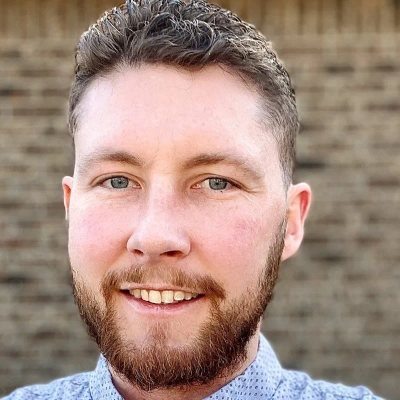25 Boundaries and Practices for Work-Life Balance as a Small Business Owner
Small business owners face unique challenges in maintaining work-life balance, with expert insights suggesting that clear boundaries are essential. This article presents 25 practical strategies from successful entrepreneurs who have mastered the art of separating professional obligations from personal time. From calendar blocking techniques to technology-free rituals, these field-tested practices offer actionable solutions for business owners seeking sustainable balance.
Calendar Blocking for Family and Work Commitments
I maintain work-life balance by using my calendar as a strategic tool, blocking specific times for both work commitments and family obligations. One boundary that has been particularly effective is ending my workday when my children finish school, which gives me dedicated family time while ensuring I remain productive during business hours. This practice requires clear communication with my team about when I'm unavailable and informing my family when I need focused work time. The key is being fully present in whatever environment I'm in - whether tackling business challenges or engaging with my family.

Plan Family First, Create Culture That Works
Balance starts with priorities. I plan for family first, then my team, then everything else. That order keeps me sharp at work and present at home. Culture helps make it real. Hire for attitude and energy, set clear guardrails on meetings, and protect deep work. Celebrate great execution and let people log off when the work is done. When leaders model healthy habits, the team follows. The business performs better because people actually have a life.
Faith-First Approach With Weekly Device-Free Sabbath
I don't really buy into the idea of work-life balance as a scale you can equally weigh; instead, I think about work-life harmony, especially as a small business founder. It's about finding a sustainable rhythm where your work serves your greater purpose, not the other way around. For me, that harmony comes from intentionally putting God first, trusting that when you focus on what truly matters, the provision and the clarity for your business decisions will follow. That practice is actually the most strategic move a founder can make for long-term mental and professional health.
The single most effective boundary I've implemented is scheduling a true, device-free Sabbath day every week. Now, what's more, this isn't just a break; it's a non-negotiable pause where I actively disconnect from the business—no email, no checking stats, and no work calls—to dedicate that time to rest, family, and spiritual activities. This intentional rest isn't a luxury; it's a necessary reset that ensures I come back to the office with renewed focus, better clarity, and a much sharper vision for the week ahead, because you can't lead well if your spiritual and mental tanks are perpetually running on empty.

Virtual Business Line With Set Operating Hours
While my business is home-based, I have a virtual phone number for my business that rings my cell. First, it shows on my phone that it is a business call coming in, and I can answer appropriately and professionally without a simple, "Hello..." Most importantly, though, I have the primary feature of ringing my cell turn on at 8:30 AM Monday through Friday and have it turned off at 5:30 PM so I am not receiving business calls during personal time with friends and family. The service is also turned off on weekends so I can focus on what is truly important. If someone truly needs to get hold of me and they have my direct cell phone, of course, they can reach me, but for strictly business calls, I turn off the system outside of standard business hours to power down and enjoy time with those closest to me.

Block Off Regular Nights for Personal Time
Doing real estate investing, my phone can ring anytime. So I learned to block off Tuesday and Thursday nights. No showings, no calls. I just do my own thing. It keeps me from burning out and weirdly, makes me sharper during the day. My advice? Put yourself on the calendar and don't cancel. Treat it like your most important appointment.

Schedule Start and Stop Times, No Email
Work-life balance requires intention when running a small business. I like to start my day by focusing on my priorities first instead of hours. I schedule start and stop times and when I leave, I actually leave. That may mean walking around my property or tending to some plants, but I unplug from my work and head outside. Spending time with nature helps me get grounded and refocus on why I started this crazy ride in the first place. One rule I've had that has really helped is no work email after dinner. I take that time to unwind and recharge my creativity and be fully present for family and reflection. Running a business is always on your mind but I've found that guarding small spaces of quiet helps me be a better leader and decision-maker. Balance is not perfection, it's knowing when to tend to yourself as well as your business.

Time-Block Personal Activities as Non-Negotiable Appointments
For me, maintaining work-life balance while running a real estate business comes down to structure and boundaries, two things most entrepreneurs overlook when they're constantly "on."
One practice that's been a game-changer for me is time-blocking personal time with the same level of commitment as client appointments. I treat gym sessions, dinners with my family, or even downtime as non-negotiable meetings. If it's on my calendar, it gets the same respect as a listing presentation.
In real estate, it's easy to justify being available 24/7, but that's not sustainable. By clearly communicating my availability to clients and my team, I've found that people are far more respectful of boundaries than we often assume. It also forces you to be more efficient during your working hours, which ultimately benefits everyone.
Balance isn't about working less, it's about being fully present wherever you are, whether that's in a client meeting or at home with your family.

Limit Property Visits to Morning Hours Only
I stopped letting property visits eat up my whole day. Now I only go to flip sites from 7 to 11 AM. That's it. Afternoons are for my kids and the actual business work that needs quiet focus. Before this, I'd lose entire days at properties and come home exhausted, missing dinner again. Put your cutoff time on the calendar like any other appointment. Treat it like a doctor's appointment you can't move.

Protect Family Time Through Full Presence
Finding balance as a business owner takes a lot of intention. The best boundary I've set is protecting family time like it's the most important meeting of the week. When I'm home, my goal is to be fully present with my wife and kids. Those moments are what matter most, and I don't want to miss them because I was too focused on my phone or the next big idea.
I've also learned the value of slowing down. Taking time to rest, breathe, and enjoy simple things—like coffee with my wife or being outside with my kids—helps me show up better in every area of life. When I care for myself and the people I love, everything else runs smoothly, including the business.

Categorize Tasks and Schedule Recovery Time
One practice that has been particularly effective for me in maintaining work-life balance as a small business owner is categorizing my workload into clear priority levels: must-do tasks, nice-to-do tasks, and things that aren't mine to carry. I've learned that setting firm boundaries with both myself and others starts with challenging the belief that overworking somehow equals self-worth. Building non-negotiable recovery time into my calendar has become essential - these scheduled breaks allow me to reflect, recharge, and reconnect with the purpose behind my business.

Daily Transition Ritual Ends Work Mode
Maintaining work-life balance while running a small business requires intentional boundaries between professional and personal time. One practice that has been particularly effective for me is implementing a daily transition ritual at the end of my workday. This ritual includes closing my laptop, taking a short walk outside, and practicing three grounding breaths to mentally signal the shift from work to personal time. On especially busy days, I also spend a few minutes journaling to "park" any lingering thoughts or tasks, which allows me to be more present with family and reduces the mental carryover of work stress.

Midweek Closure Reduces Team Burnout
We close our pet therapy business every Wednesday. No clients, no meetings, just a day for people to handle their lives. The team seems less exhausted, and I've noticed our turnover has dropped. Honestly, giving everyone that predictable break in the middle of the week has made all of us more focused when we are working.
Batch Similar Tasks to Free Up Mornings
Here's what changed everything for me. I started batching my podcast recordings and franchise consultations, all in one or two days. That meant my mornings were finally free for the gym and time with my kids. I put those morning blocks on my calendar like they're appointments. Work stopped eating into my life. I got more done at the office and stopped feeling guilty at home. It's a simple switch. Put your life on the calendar first, then your work.
Rotational On-Call System With Full Disconnect
Running a criminal defense firm means client emergencies happen at 3 AM, not just during business hours. For me, "work-life balance" is impossible without a system of empowered, rotational coverage. One boundary I'd suggest is a shared on-call calendar. When it's your week to be on-call, be 100 percent available, but when it's not, be 100 percent off. Don't check after-hours messages. Trust your team to handle it. This boundary only works if you empower your team to make decisions, allowing you to truly disconnect and avoid burnout.

Morning Riverside Reflection Before Business Calls
Having come from 15 years in the restaurant industry where you're always 'on,' I had to learn the hard way that real estate investing doesn't require that same urgency. My most effective boundary is what I call 'water time'--every morning I spend at least 30 minutes by the Savannah River with my coffee before diving into property evaluations or contractor calls. This practice keeps me grounded in why I chose to live in the Lowcountry in the first place, and I've found that the deals I evaluate during this calm mindset are actually more profitable than the ones I rush into.

Sacred Saturday Mornings on Puget Sound
I learned from my years in vocational ministry that you can't pour from an empty cup, so I've made Saturday mornings completely sacred--that's when I take my boat out on Puget Sound, just me and the water. This practice came after I realized I was bringing construction stress into my home life, and now that weekly reset on the water gives me clarity for both my real estate decisions and my family time. What makes it work is that I tell clients and contractors upfront that Saturday mornings are off-limits unless it's a true emergency, and honestly, there's never been a real emergency that couldn't wait until Saturday afternoon.

Morning Mirror Hour Preserves Mental Clarity
I don't aim for work-life balance. I actually aim for energy integrity.
Running a business is constant motion, so "balance" isn't stillness, it's rhythm.
My most effective boundary is what I call the mirror hour, that's one protected block each morning that belongs to thinking, not producing. No Teams, no email, no client calls (yet). I use it to audit my own signal: What's noise today? What actually matters?
That hour keeps me human. It reminds me that clarity is fuel, not a luxury.
When founders guard their energy with the same discipline they guard their calendar, work and life stop competing, they start collaborating.

Tools Down Rule Separates Work From Home
I've learned to compartmentalize my days like construction projects--when I'm working on buying houses or managing renovations, I'm fully focused, but when I'm done for the day, I switch off completely. The boundary that's been most effective is what I call my 'tools down' rule: just like my father taught me in construction, when 5 PM hits, I put down my phone and walk away from work emails until the next morning. This practice actually came from watching my dad run his construction company--he never brought job site stress to the dinner table, and that discipline taught me that respecting downtime makes you sharper when you're back on the job.
Family Events Locked Into Business Calendar
One practice that's really worked for me is putting my kids' practices, recitals, and even simple family dinners on my business calendar--no "tentative" about it, they're locked in. For example, during a particularly busy stretch of closings, I made sure Friday evenings were always "pizza night" at home with Sara and the kids, no exceptions. Having that firm, recurring commitment gives me something to look forward to, and it signals to clients and team members that my family time is just as important as any showing or negotiation.

Thursday Evenings as Mandatory Operations Standdown
As a veteran and founder running a seven-day-a-week business like real estate, I learned the hard way that boundaries are non-negotiable. My most effective practice? Treating Thursday evenings like a military operations stand down--no property calls, no emails, just my family and poker night. That mandated break resets me, helps the team develop autonomy, and strangely makes Friday negotiations sharper.

Reserve Mornings for High-Value Solo Work
I stopped taking meetings in the morning. That time is now for the things only I can handle, like refining partnership proposals or writing important emails. It took a while to get used to, but now that my afternoons are for calls, I actually have the energy to do the work that matters. If you're putting out fires all day, try making your mornings untouchable. Even a couple of uninterrupted hours makes the rest of the day feel less chaotic.

Evening Shutdown Ritual Creates Mental Handover
As a founder, I stopped chasing the elusive word... "balance" ... and started designing boundaries with intention. For me, work-life harmony isn't about perfect proportions. It's about clarity. The moment I defined what truly matters each season, I could make trade-offs consciously instead of constantly reacting.
My most effective boundary is my shutdown ritual. Every evening, before I close my laptop, I write down three things: one win, one lesson, and one intention for tomorrow. It sounds simple, but it creates a clear mental handover between work and life. When I close that notebook, I close the workday too.
Running a business means there's always more to do, but clarity protects energy. I've learned that leadership isn't about endurance , it's about presence. When I give myself permission to rest, I show up with more creativity and compassion for my team and clients. That's the harmony part - it's not an even split, but a rhythm that's sustainable.
Entrepreneurship will always bring tricky balance issues, but when your boundaries reflect your values, you don't burn out and you build impact that lasts.

Technology-Free Mornings for Grounded Focus
That's such an important question — and one that never really has a "set and forget" answer. For me, balance starts with boundaries that protect focus rather than time. I've learned that I can't do everything at once, so I divide my week into distinct modes: deep work days for strategy and client projects, and light days for people, calls, and family. That rhythm helps me show up fully wherever I am.
The most effective boundary I've set is keeping mornings technology-free until after I've done something grounding — a walk, reading, or quiet planning. It keeps me from reacting to the day before I decide what matters most.
As a founder of Tinkogroup, a data services company, I also apply the same discipline to my team: clear expectations, no weekend emails, and respect for focused work. Balance isn't about doing less — it's about being more deliberate with your attention.
Cooking Demands Complete Focus From Work
I burned out hard while building my journaling app. The only thing that saved me was cooking. It's a skill I even honed on Masterchef Canada, and it demands total focus, leaving no room for work stress. You need something like that, an activity that fully absorbs you. It's how I finally recharge and show up for my family at the end of the day.
Set Firm Hours and Respect Team Boundaries
Managing multiple barbershop locations requires discipline. One effective practice is setting firm work hours. I avoid taking business calls late at night or on personal days, which allows me to recharge and return to the shop with focus. This boundary has strengthened my energy and decision-making throughout the week.
I also structure the shop schedule to ensure that each barber has consistent time off. By respecting their personal boundaries, I've noticed not only improved morale but also better customer service. Clients can feel the difference when our team is fully engaged and refreshed.
Lastly, I dedicate time to planning and organization. Prioritizing tasks such as inventory, staff coordination, and client appointments during designated hours frees up the rest of my day for family, exercise, or downtime. These boundaries make the intense pace of running a successful barbershop manageable and sustainable.








